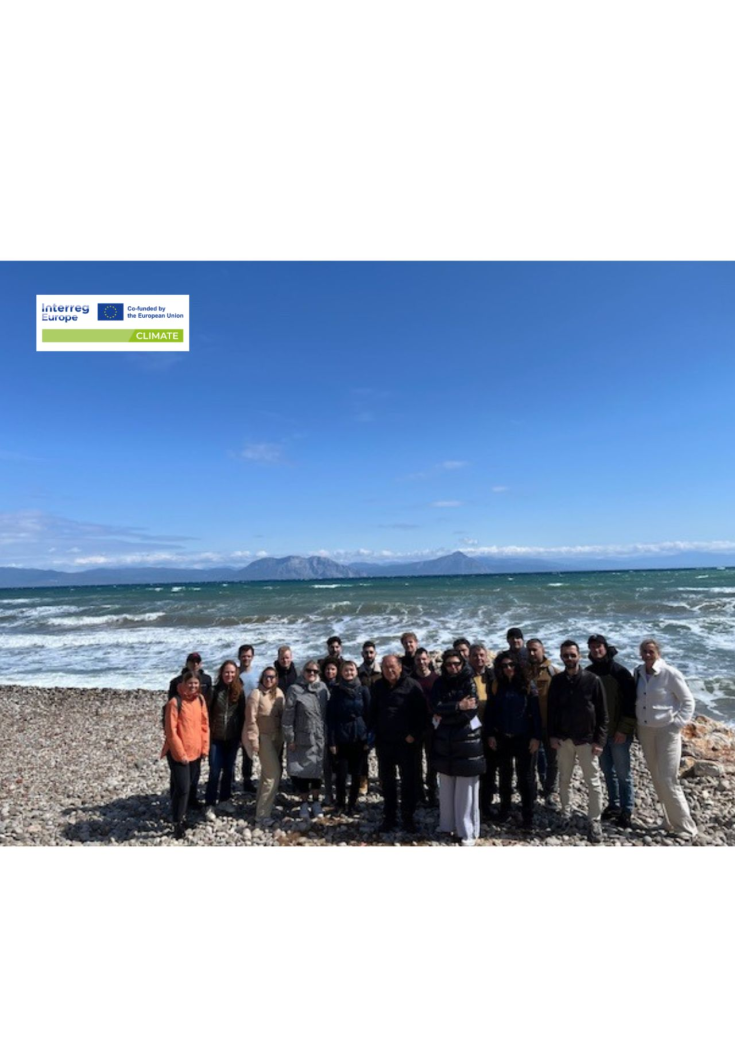A milestone moment for the CLIMATE Project!

The CLIMATE consortium grasped the opportunity to meet in person after one year from the initiation of the project and set a concrete base for the upcoming activities. Fruitful discussions took place, focusing on climate resilience and the adaptations that EU regions need to implement in order to address their climate vulnerability to extreme weather events.
Field Visit: Kalamaki Beach — A Lesson in Coastal Adaptation
On the 8th of April, the CLIMATE consortium visited Kalamaki Beach in Achaia Municipality, where technical works to address coastal erosion are currently taking place. These works are funded by the LIFE Project @adaptivegreece, which is the most relevant project for climate adaptation in Greece.
CLIMATE partners had the opportunity to witness a new technique for maintaining and developing the beach and received a brief explanation regarding the upcoming activities.
Knowledge Exchange: Workshop on Emergency Response Protocols
The day continued with the Workshop on Emergency Response Protocols, where dedicated presentations were delivered by:
Professor Athanasios Argiriou from the Department of Physics — Current Meteorological and Climatological Databases.
Mrs. Elena Dede, Policy Expert in Animal Emergency Management — The Role of NGOs in Climate Emergencies: The Case of Dogs’ Voice.
Professor Dimas Athanasios from the Department of Civil Engineering — Assessment of Climate Change Effect on Coastal Hazards: A Case Study for the Corinthian Gulf.
The workshop ended with a roundtable discussion, where partners exchanged information and experiences, discussing their current climate adaptation plans and the means of communication for alerting citizens when extreme weather events occur.
Kick-Off Meeting & Looking Ahead
The following two days were dedicated to the Kick-Off Meeting of the CLIMATE Project, where partners discussed the first results of the comparative analysis from the survey that ran during the second semester. The results pinpointed common climate hazards across CLIMATE territories and identified shared sources of vulnerability that require coordinated adaptation efforts.
The next Interregional Policy Learning Event was scheduled for June.
The meeting concluded with the 1st Steering Group Session, where the next steps and upcoming tasks of the CLIMATE Project were planned.
